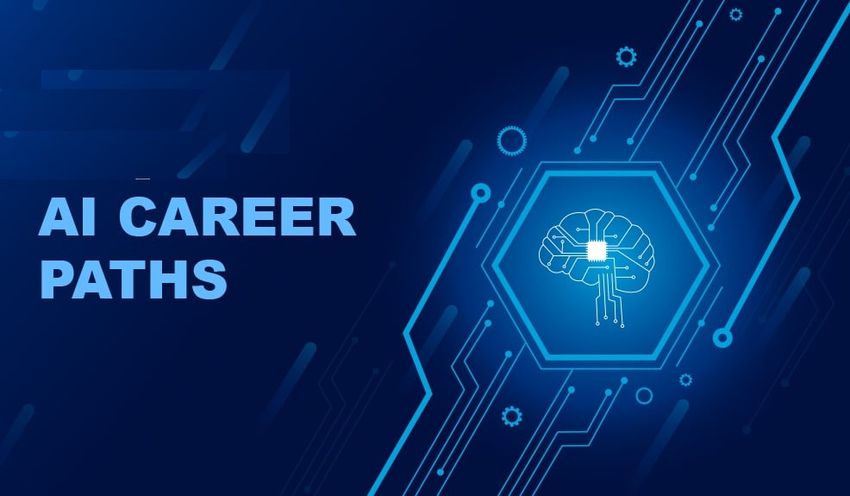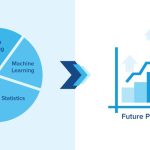Artificial Intelligence (AI) is one of the fastest-growing fields in technology, offering a range of exciting career opportunities. With its applications expanding across industries such as healthcare, finance, education, and entertainment, now is the perfect time to consider building a career in AI. This article will guide you through the roles, skills, and certifications needed to thrive in the AI industry.

1. Career Roles in AI
AI encompasses a wide variety of job roles tailored to different skill sets and interests. Here are some key roles:

a. Machine Learning Engineer
- Develops machine learning models and algorithms.
- Optimizes data processing pipelines and ensures scalability.
- Works with tools like TensorFlow, PyTorch, and Scikit-learn.
b. Data Scientist
- Collects, processes, and analyzes large datasets.
- Builds predictive models and extracts actionable insights.
- Proficient in Python, R, and SQL.
c. AI Research Scientist
- Conducts cutting-edge research in AI technologies.
- Develops new algorithms and improves existing systems.
- Works on advanced topics like reinforcement learning and computer vision.
d. AI Product Manager
- Oversees AI-driven product development and strategy.
- Bridges the gap between technical teams and business goals.
- Strong knowledge of AI tools, business acumen, and project management skills.
e. Robotics Engineer
- Designs and programs robots to perform specific tasks.
- Integrates AI systems for autonomous decision-making in robots.
- Skills in mechanical engineering, programming, and AI.
f. Natural Language Processing (NLP) Engineer
- Specializes in language-based AI systems like chatbots, virtual assistants, and text analysis.
- Works with NLP libraries like SpaCy, NLTK, and Hugging Face Transformers.
2. Essential Skills for a Career in AI

a. Programming Languages
- Proficiency in Python, R, Java, or C++.
- Python is widely preferred due to its extensive libraries like TensorFlow, NumPy, and Pandas.
b. Mathematics and Statistics
- Strong grasp of linear algebra, calculus, probability, and statistics.
- Knowledge of optimization techniques for machine learning models.
c. Data Handling and Visualization
- Skills in handling large datasets using tools like Apache Spark and Hadoop.
- Experience with visualization tools such as Tableau, Matplotlib, and Seaborn.
d. Machine Learning and Deep Learning
- Familiarity with supervised, unsupervised, and reinforcement learning.
- Experience with neural networks, CNNs, RNNs, and GANs.
e. Problem-Solving and Creativity
- Ability to think critically and creatively to solve complex problems.
- Collaboration and communication skills to work effectively in teams.
3. Top Certifications to Boost Your AI Career
Certifications can validate your skills and give you a competitive edge in the job market. Here are some highly regarded AI certifications:

a. Google Professional Machine Learning Engineer
- Focuses on designing, building, and managing machine learning solutions.
- Covers real-world applications of AI on Google Cloud.
b. IBM AI Engineering Professional Certificate
- A comprehensive course covering machine learning, deep learning, and NLP.
- Available on Coursera.
c. Microsoft Certified: Azure AI Engineer Associate
- Focused on deploying AI solutions using Azure AI services.
- Covers computer vision, NLP, and conversational AI.
d. DeepLearning.AI TensorFlow Developer Certificate
- Specializes in using TensorFlow for building and deploying AI models.
- Suitable for those focusing on deep learning.
e. Stanford Online’s Machine Learning Course (Andrew Ng)
- One of the most popular and beginner-friendly courses.
- Provides a strong foundation in AI and machine learning.
f. AWS Certified Machine Learning Specialty
- Covers the use of AI tools on the AWS platform.
- Suitable for those interested in cloud-based AI solutions.
4. How to Kickstart Your AI Career

Step 1: Acquire the Basics
- Learn Python, basic statistics, and linear algebra.
- Take free or affordable online courses like Andrew Ng’s Coursera course.
Step 2: Gain Practical Experience
- Work on personal projects like building chatbots, recommendation systems, or image classifiers.
- Contribute to open-source AI projects on GitHub.
Step 3: Build a Portfolio
- Showcase your AI projects, certifications, and skills in an online portfolio.
- Platforms like Kaggle can help you display your work and participate in competitions.
Step 4: Network and Stay Updated
- Join AI communities on platforms like LinkedIn, Reddit, and Discord.
- Attend conferences, webinars, and hackathons to stay informed about trends.
Step 5: Apply for Internships or Entry-Level Roles
- Look for internships to gain hands-on experience.
- Start with roles like data analyst or junior machine learning engineer.
5. Future Prospects of AI Careers
The demand for AI professionals is expected to grow exponentially. According to a report by Gartner, AI-related jobs will dominate the tech landscape in the coming years. With the right skills and certifications, you can secure a lucrative and impactful career in AI.
Conclusion
Building a career in AI requires a combination of technical skills, practical experience, and continuous learning. By understanding the available roles, honing essential skills, and earning relevant certifications, you can position yourself for success in this exciting and ever-evolving field.

